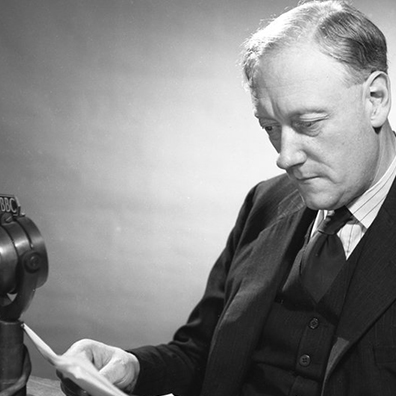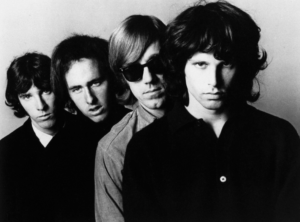
Why Is a Manhole Cover Round? The Fun of Interviews

Although I felt as if I had way overprepared for the airline pilot interview, just like every other candidate who was sitting nervously with me in the waiting room, I was still steamrolled when it started.
They know that if you can’t handle a few hardball questions in the comfort of an office interview then they will doubt how you respond to a dangerous aircraft emergency during the middle of the night, at 35,000 feet, and over the dark and wintery wastes of the North Pacific Ocean.
There were two company individuals in the room to interview me—a check Captain and a Human Resources rep. The former was there to ask all the specific aircraft and technical questions as well as to get a feel if I could work as a team member in the cockpit over a multi-day trip—a time when fatigue can, or better said
Looking at an additional form I had to fill out as the interview started, he wanted to know why my handwriting was so bad. Why did I bring two logbooks to the interview when every other candidate had brought just one? When I explained that I had flown in Japan and assumed he would like to see the certificates and signatures he wanted to know, since he did not read Japanese, how in the world he could be assured that they were not fake? One sharp and brusk query followed another until, mercifully, the check captain started to weigh in with the technical questions—questions that usually are intimidating but in this case were a p
A couple of years later I was in line at the pretzel stand at the airport when I recognized him in front of me. I introduced myself, thanked him for giving me the green light to be hired, but gently asked why he had been in such an attack dog mode. He laughed as if he had not a care in the world and explained that he employed a lot of different techniques to put stress on the candidates. He said that while he did not remember me, that he probably just determined, on that day and immediately upon my walking through

Since then I have enjoyed reading about what different industries look for in their candidates, how they conduct the
I am sure that you have read of the interview questions at places such as Google, Microsoft, and other tech firms. These queries range from the seriously scientifically rigorous (Think Poindexter here!), the practical such as why a manhole cover is round, to the more contemplative as how many gas stations you think are in your town and how you calculated it. What they are getting at of course is not so much what you think but rather how you think as George Orwell so famously put it.
The hard and cold reality though is that the real purpose of all those questions is not to see how far any one candidate is
Another type of interview that I enjoy is when an intelligent moderator/reporter sits down with an elite for a one-on-one. This elite might be an entertainer, business leader, politician, intellectual, or simply a person of note. In a
Many of these individuals (especially the politicians and business leaders) live in an extremely scripted environment and have assistants to ensure that they will never be asked a question or presented with a situation that takes them completely off guard.
As an aside, I once saw a crack in this façade during the questioning of a 4 Star general. Someone asked a question that apparently the general had not been briefed for and he was livid as he muttered something angrily to his aide—a full Colonel. This
Disclaimer: I am encouraged by the long-form structure of many podcasts that allow a host to chat with a guest for an hour or even two. Granted the elites usually do not grant this amount of time to an interviewer, but it is a step in the right direction to tease out real and meaningful thought.
There are two things that I really enjoy about the answers the elite give to questions. The first is that they answer them in a
While I realize there are tons of things that we can learn from our betters through their good recommendations, I know that during an interview the films they mention are not the ones that we often see, the music they express an appreciation for is not that which we hear, nor is their reading list filled with books that we frequently read. Since a good deal of this is scripted I wonder how long it takes for them to come up with these answers. Is some poor aide left to beavering away to find these arcane bon mots to keep the elite’s public persona going?
Geek that I am, I can’t seem to get my fill of these histrionic pretensions. These “poor” elites are between the rocks (of course the elites would instead use the phrase between Scylla and Charybdis) of trying to relate to us on a personal and human level but also, at the same time, to distance themselves from us and
Oh, by the way, why is a manhole cover round? Well, because it is the only shape that cannot fit back through the opening and thus will not fall in if turned on its edge. Be careful though if you decide to try this out—the covers are heavy!
Coming soon: A look at how the intellectual Max Weber, the actor Rock Hudson, and a number of my bosses through the years have commented on leadership. Also why I like the phrase “neutral buoyancy” to describe life.
What ho!
![]()







This piece caused a momentary flashback to my AA interview in 1985(advent of the dreaded “B” Scale invented by Bob Crandall). The HR interviewer doggedly insisted that my failing grade in a German course that I withdrew from in 1971 would cripple my efforts to succeed in an aviation career. She “baited” me with that “failure” suggesting that I obviously lacked the perseverance to complete a rigorous training program. Naturally this was subsequent to successful completion of USAF-UPT, C-130 TTU & actual Instructor Pilot duties at the formal Little Rock AFB school house. My amusement with her did not win any brownie points!
Great recollection Bill! Rather odd at what they drive at–particularly something that was 14 years previous in your case with the dropped German course. Not only that, didn’t you speak Thai? A much harder language to learn from what I hear!
There is a certain camp in which it is believed that interviews are a poor means of judging one’s merit. A brief piece in Forbes makes the point here.
https://www.forbes.com/sites/forbeshumanresourcescouncil/2018/02/12/job-interviews-dont-work-how-to-rethink-your-interview-process/#4fe5c6732e83
I once was given the additional duty of finding a receptionist for an office. Since the duties would include word processing I had prepared a handwritten script to be typed and printed – an exercise that was timed. After explaining this audition phase of the interview I gave the applicant a note card with the user ID and password, and showed them into a cubicle with a laptop computer and bade the individual to begin. “Don’t hesitate to speak to me about any problems”, I said.
By design the laptop batter was stone dead. Elsewhere in the cubicle, in plain view, but amidst many other objects, was the AC/DC converter.
The job was awarded to the applicant who sorted out all of that without bothering me. She had a problem solving spirit!
You bring out good points as always Fitz. I liked the link that you included and the concept of an audition. This is much like the Michelin chef asking a new assistant to cook an omelette.
I am of two minds about this. One, I like how you screened for the receptionist position. A good way to determine if the candidate has a bit of think-on-the-feet ability, motivation, and can handle the curve ball. Handling problems is a good chunk of any job and this gets to that.
On the other hand, as an average gent I am wary of this test and that. I think of the famous “Marshmallow test” that seems to determine one’s future in an almost fatalistic manner. Observations that show that a young person that makes more eye contact with others is 78.514% more likely to be an executive, be in the top 10% of all income earners, garner the Fields Medal, and on and on. It is too predictive of where as I, the average person, might end up in life…
What I like most of all is taking a candidate with rough and ready aptitude and attitude and training them. This is something the Japanese did to wonderful success. Instead of the “cometh the hour cometh the man” kind of thing, they train, train, and train some more. This was a good deal of the guesswork is left out of it. It is great that the receptionist applicant could cut through the fog and hook up the power supply, but what I fear is that one or two solid candidates might have slipped through for a half-dozen reasons. I am not sure where the correct balance is for I can only fight my corner and that is of the average!
Your addition to the discussion is well appreciated. Thanks!